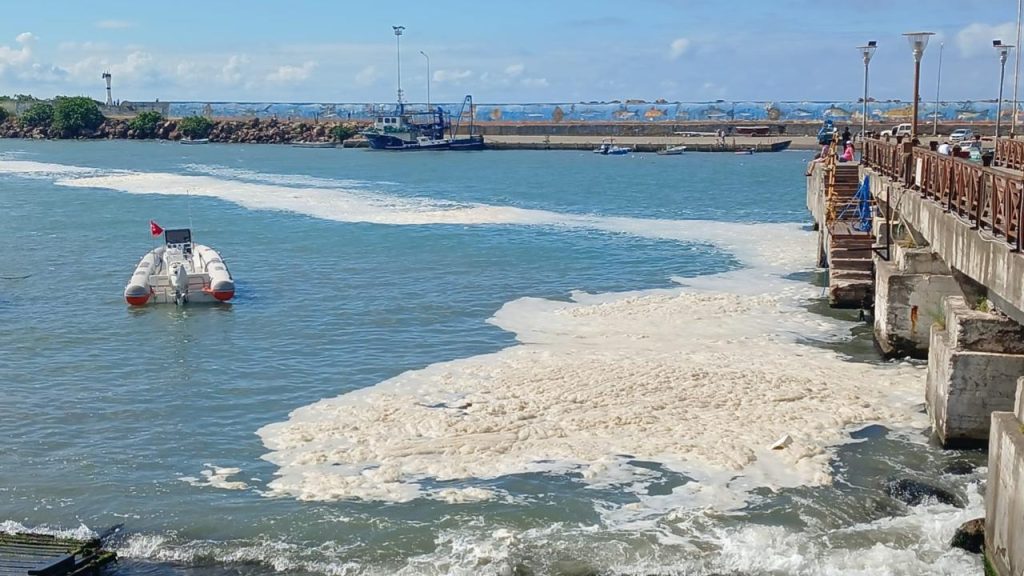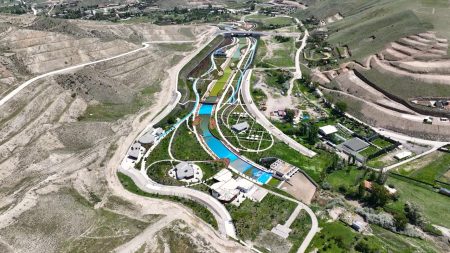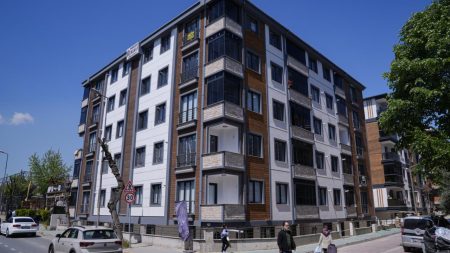In recent years, the phenomenon known as “sea snot”, or marine mucilage, which has been frequently seen in the Marmara Sea, has now been observed in the Black Sea as well. In the coastal town of Akçakoca, known for its blue-flagged beaches, marine mucilage was spotted in the port areas. Holidaymakers who had come to Akçakoca for the Eid al-Fitr holiday were surprised to find white sticky sea snot instead of the usual blue waters on the beaches.
The marine mucilage, which is mainly concentrated in the port area, has been spreading along the Akçakoca shoreline with the help of the wind, prompting authorities to initiate studies on the issue. The appearance of sea snot in the Black Sea has raised concerns among environmentalists and officials due to its potential impact on marine life and tourism in the region. Efforts are being made to determine the causes of this phenomenon and to find solutions to prevent its further spread in the area.
Experts believe that the increase in sea snot occurrences can be attributed to several factors, including pollution, rising sea temperatures, and nutrient-rich waters. Marine mucilage is a natural result of high nutrient levels in the water, combined with warm temperatures, creating a sticky and jelly-like substance that spreads across the surface of the sea. The accumulation of marine mucilage can have detrimental effects on marine life by blocking sunlight, oxygen, and nutrients from reaching the underwater ecosystems, leading to disruptions in the food chain and ecosystem balance.
Authorities are closely monitoring the situation in Akçakoca and taking measures to clean up the sea snot in the affected areas. Local residents and businesses are also being urged to minimize their impact on the marine environment by reducing pollution and waste in the sea. Efforts are being made to raise awareness about the importance of preserving marine ecosystems and preventing the spread of marine mucilage in order to protect the biodiversity and ecological balance of the Black Sea.
As the summer season approaches and more tourists visit the Black Sea coast, the presence of sea snot in popular beach areas like Akçakoca poses a challenge for local authorities and businesses. It is crucial for all stakeholders to work together to address this environmental issue and find sustainable solutions to protect the marine environment. By implementing effective conservation measures and promoting responsible tourism practices, the Black Sea region can mitigate the impact of marine mucilage and ensure the long-term health of its marine ecosystems. The recent appearance of sea snot in the Black Sea serves as a warning sign of the urgent need to address environmental issues and protect the oceans for future generations.














